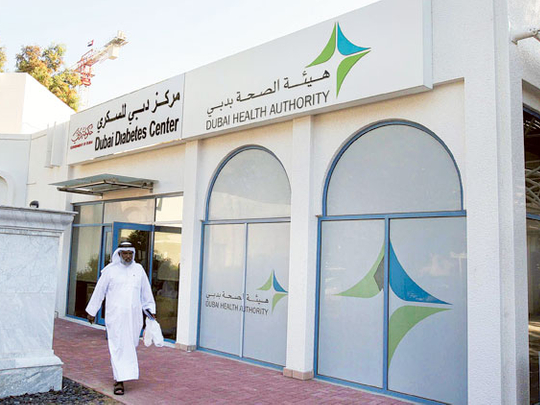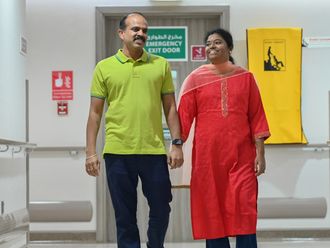
Dubai: The answer to how much does Dubai spend on health will be provided through the Health Accounts System of Dubai (HASD), which is being implemented by the Dubai Health Authority (DHA) with immediate effect. The roll-out of the HASD was part of a workshop attended by more than 200 participants from the health-care sector on Monday.
The finacial data – collected from health-care providers and insurance companies across the government, semi-government and private sectors, and residents - will help policy-makers understand the country’s health systems.
The HASD will provide a systematic, consistent and complete overview of all relevant information on the health system with a focus on expenditure.
The information will also help develop national health and provide an international benchmark for comparison with other places of similar socio-economic background.
The first Health Accounts System of Dubai report is expected by the end of the year.
Several countries like Jordan, Egypt, and Tunisia have adopted the international System of Health Accounts (SHA), a global standard for producing health expenditure accounts, developed by the World Health Organisation (WHO) in collaboration with the Organisation for Economic Co-operation and Development (OECD) and Eurostat (Statistical Office of the European Union).
Through the Health Accounts System of Dubai, based on the WHO’s SHA, the emirate too joins this list.
The DHA has a core technical team in place to manage – collect, process and analyse - the financial data. The data received will be displayed at collective and aggregate levels.
During the workshop, senior officials from the DHA and the WHO spoke about the need for health expenditure information against factors like changing demographics, disease patterns, technological advances, and health-care activities in the emirate. They urged the Dubai health-care sector to cooperate with the necessary information.
Engineer Eisa Al Maidour, director-general of the DHA, stressed that from an expenditure perspective, the new accounts system is beneficial for both national and international levels to monitor as well as assess the health-care sector’s performance.
Speaking to Gulf News, Al Maidour said the timing of the launch of the Health Accounts System of Dubai is in line with the emirate’s long-term vision.
“At the DHA, we believe in a master plan to reach our goals and build on our achievements. We need data [health expenditure information] to ensure an evidence-based master plan. Through the data we can improve the health-care sector. Over the years, we can use the data to compare our progress both on a national as well as on an international level.”
About the HASD, Dr Haidar Al Yousuf, Director of Health Funding at the DHA, explained that the new system will look at all the sources of health-care spending and how efficiently an individual and the health-care sector spends on health care.
He told Gulf News, “It is an important tool for decision makers to prioritise utilisation of resources in the health-care sector. The whole cycle of spending is documented. Hence everyone who pays for health - from government to private sectors and pharmacies and insurance companies - has to submit information.”
Towards the implementation of the system, there are around seven dedicated members in the DHA core team, Dr Al Yousuf added.
Dr Cornelis Van Mosseveld, health economist with the World Health Organisation (WHO), told Gulf News that the system is indispensable for a country to track trends in health spending and formulate policies.
He said, “Collecting the data and using it at a policy level will certainly help improve and/or implement new health programmes. The WHO will provide as much support and technical assistance to help the Health Accounts System of Dubai (HASD).”










